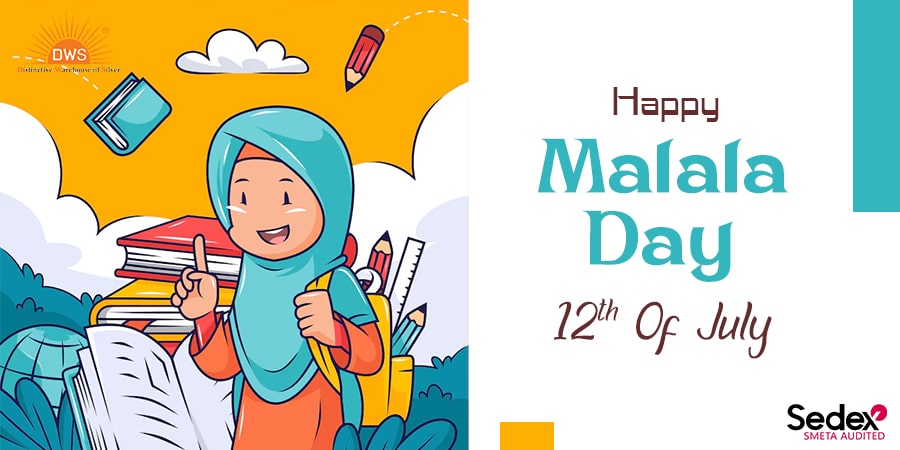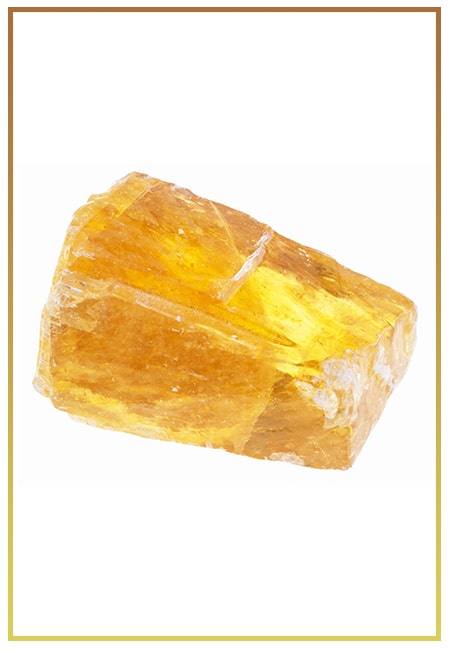- Written By Team DWS
- Festivals
- June 16, 2025
Why Malala Day Matters: A Call to Action for Global Education
Every year on July 12, the world celebrates Malala Day—a day dedicated to the courage and resilience of Malala Yousafzai, the Pakistani education advocate who survived an assassination attempt by the Taliban at the tender age of 15. This day is a reminder of the need for equal education opportunities for all children and a call to action to fight against the barriers that deny millions the right to learn. In this blog post, we will explore why Malala Day matters and how we can rally together to promote global education.

The Legacy of Malala
Malala Yousafzai rose to prominence when, as a young girl, she began advocating for girls' education in her home region of Swat Valley, Pakistan, where the Taliban had decreed that girls were not allowed to attend school. Her bravery in the face of adversity inspired countless others to join her cause. In 2014, she became the youngest-ever Nobel Prize laureate, recognized for her relentless efforts to promote access to education, particularly for girls around the world.
Malala’s story is not just one of personal triumph but a significant chapter in the ongoing fight for the right to education. Her advocacy has helped shine a spotlight on the struggles faced by children in conflict zones, communities affected by poverty, and places where gender-based discrimination persists. Malala Day serves as an annual reminder of her journey and the larger movement for education equity that she represents.
Education: A Fundamental Right
Education is universally recognized as a fundamental human right. The United Nations’ Sustainable Development Goal 4 aims to ensure inclusive and equitable quality education and promote lifelong learning opportunities for all by 2030. Despite this noble vision, millions of children are still out of school. According to UNICEF, an estimated 258 million children and youth were out of school in 2018, and that number has likely worsened due to the COVID-19 pandemic.
When children are deprived of education, they are robbed of their potential to escape poverty, advocate for their rights, and contribute meaningfully to their communities. Education is not just about acquiring knowledge; it empowers individuals to break the cycle of poverty and improve their quality of life. Furthermore, educating girls has a ripple effect on entire societies—leading to better health, increased economic productivity, and greater social and political participation.
The Power of Advocacy
Malala Day is more than just a day of remembrance; it is a call to action. It invites each of us to become advocates for education, both locally and globally. Awareness is the first step toward change, and by engaging in discussions about education disparity, we can amplify Malala’s message. Whether through social media, community events, or schools, everyone has a role to play in promoting the importance of education.
On Malala Day, individuals and organizations around the world are encouraged to share their stories, increase awareness about education issues, and take action. Initiatives may include fundraising for educational programs, volunteering, or simply using one’s voice to advocate for policy changes. The more collective actions we take, the more significant the impact we can create.
Addressing the Barriers to Education
One of the primary goals on Malala Day should be to examine the barriers that prevent children from accessing education. These barriers come in various forms—financial, social, and political. For many families, the cost of school supplies and uniforms can be prohibitive. In other cases, societal norms may prioritize boys’ education over girls’, sidelining the educational aspirations of young girls.
Additionally, conflict and displacement play a crucial role in education denial. Children living in war-torn regions face unimaginable challenges, including the destruction of schools and the constant threat of violence. For them, education is not only a pathway to knowledge but a rare semblance of normalcy amidst chaos.
How Each of Us Can Make a Difference
As we reflect on the significance of Malala Day, we must remember that every small action can make a difference. Here are some ways you can contribute:
- Educate Yourself and Others: Learn about the global education crisis and its impact on children in different parts of the world. Share that knowledge with your community.
- Support Local Educational Initiatives: Many organizations work tirelessly to provide educational opportunities for marginalized children. Research and support these initiatives through volunteering or donations.
- Use Your Voice: Advocate for education policies in your local and national governments. Engage with representatives to ensure education remains a priority in policy discussions.
- Spread the Word on Social Media: Use your platforms to highlight Malala’s story and raise awareness about educational inequalities.
Conclusion
Malala Day matters because it represents the ongoing struggle for education for all. It serves as an annual reminder of the power of one voice and its ability to inspire change. As we commemorate this day, let us not only honor Malala Yousafzai's remarkable journey but also commit ourselves to advocating for the millions of children who are still denied their right to education. By joining forces, voicing our support, and taking measurable actions, we can contribute to a world where education is accessible to every child, regardless of their background or circumstances. Together, let us work to ensure that the dream of education becomes a reality for all, honoring Malala's legacy and the promise it holds for our future generations.

Malala Day FAQs: Understanding the Significance and Celebration of Malala Yousafzai's Impact on Education and Equality
Certainly! Here’s a list of frequently asked questions (FAQs) about Malala Day:
1. What is Malala Day?
Answer: Malala Day is a global observance held on July 12 each year, celebrating the birthday of Malala Yousafzai, a Pakistani education activist and the youngest-ever Nobel Prize laureate. It honors her fight for girls’ education and advocates for the rights of children worldwide.
2. Why is July 12 significant?
Answer: July 12 is significant because it marks Malala Yousafzai's birthday and the day she delivered a powerful speech at the United Nations in 2013, advocating for worldwide access to education and gender equality.
3. What was the impact of Malala’s story?
Answer: Malala's story has inspired millions globally. Following a 2012 assassination attempt by the Taliban due to her advocacy for education, she emerged as an emblem of strength and bravery. Her activism has mobilized support for girls’ education and influenced public policies around the world.
4. What is the theme of Malala Day?
Answer: Each year, Malala Day may have a specific theme that focuses on various aspects of education and gender equality. The themes aim to address current issues in education and promote awareness about the importance of ensuring that girls everywhere have the right to learn.
5. How can people participate in Malala Day?
Answer: People can celebrate Malala Day in various ways, including organizing educational events, discussions, and activities that promote girls' education. Social media campaigns, fundraising for education initiatives, and community service projects are also common ways to mark the day.
6. What organizations are involved in promoting Malala Day?
Answer: Various organizations, including the Malala Fund and the United Nations, promote Malala Day. These organizations work to raise awareness about educational issues and advocate for policies that support girls’ access to education.
7. How can I support girls’ education on Malala Day?
Answer: You can support girls’ education by donating to organizations like the Malala Fund, volunteering with local educational initiatives, advocating for policy changes in education, and spreading awareness through social media and community efforts.
8. Are there any events organized on Malala Day?
Answer: Yes, many schools, colleges, and organizations host events aimed at raising awareness about the importance of education for girls. These can include talks, workshops, panel discussions, and social media campaigns sharing stories of girls from around the world.
9. Is Malala Day recognized officially?
Answer: While Malala Day is not a formal public holiday, it is recognized internationally by various organizations and movements focused on education and human rights, particularly by the United Nations.
10. Where can I find more information about Malala Yousafzai and her work?
Answer: More information about Malala Yousafzai, her advocacy work, and related initiatives can be found on the Malala Fund's official website, as well as through books, documentaries, and various online resources dedicated to her story and mission for girls’ education.
Feel free to adapt or expand on these questions and answers to fit your specific needs!
Popular on Blogs

Black Tourmaline: Meaning, Healing Properties, Fascinating Facts, Powerful Attributes, Versatile Uses, and Beyond
September 05, 2023 / BY Team DWS
Black Tourmaline, also known as Schorl, is a highly revered crystal with incredible metaphysical properties. It derives its name from the Dutch word "turamali," meaning "stone with ..

Carnelian Stone: Meaning, Healing Properties, Power, Facts, Color, Uses and More
December 26, 2023 / BY Team DWS
Carnelian is a vibrant and captivating gemstone that holds a plethora of meanings, healing properties, and powers. Its warm and fiery energy makes it a popular choice among crystal ..

Citrine: Exploring its Meaning, Healing Properties, Fascinating Facts, Powers, Versatile Uses, and Much More
November 18, 2023 / BY Team DWS
Citrine, with its warm golden hues, has captured the attention and imagination of people for centuries. This beautiful gemstone, commonly associated with wealth and prosperity, hol ..

Black Onyx: Unveiling the Meaning, Healing Properties, Fascinating Facts, Powerful Attributes, Versatile Uses, and Beyond
July 25, 2023 / BY Team DWS
Black Onyx, a striking gemstone admired for its deep black hue and elegant appearance, has captivated people for centuries. In this comprehensive guide, we will delve into the mean ..

Unveiling the Mysteries of Turquoise Stone: Exploring its Meaning, Healing Properties, Power, Facts, Color, Uses, and More
December 05, 2023 / BY Team DWS
Turquoise, with its captivating blue-green hue, has been adorning jewelry and artifacts for centuries. This striking stone has a rich history, rich symbolism, and a plethora of int ..

The History Behind The Popularity of Red Agate
December 23, 2022 / BY Team DWS
An Agate is a type of magma rock that takes many years till it is washed out naturally into the water. And that is the reason this stone has elements of water. This beautiful stone ..

Bloodstone: Unveiling the Meaning, Healing Properties, Facts, Powers, Uses, and More
August 21, 2023 / BY Team DWS
Bloodstone, with its captivating deep green color with specks of red, is a mesmerizing gemstone that has fascinated civilizations for centuries. It possesses unique healing propert ..

Plan a Perfect Valentine's Week with Our Valentine Week List 2025
January 22, 2024 / BY Team DWS
Valentine's Day is undoubtedly the most romantic day of the year, but we believe that one day is just not enough to express your love and make your partner feel special. That's why ..


